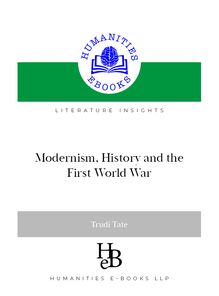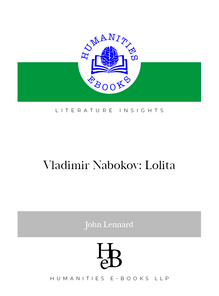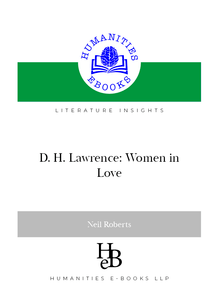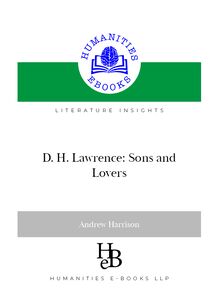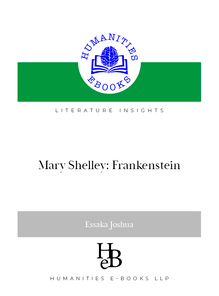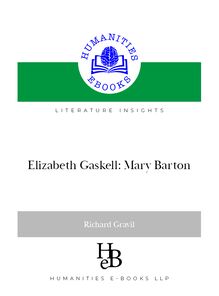-
 Univers
Univers
-
 Ebooks
Ebooks
-
 Livres audio
Livres audio
-
 Presse
Presse
-
 Podcasts
Podcasts
-
 BD
BD
-
 Documents
Documents
-
- Cours
- Révisions
- Ressources pédagogiques
- Sciences de l’éducation
- Manuels scolaires
- Langues
- Travaux de classe
- Annales de BEP
- Etudes supérieures
- Maternelle et primaire
- Fiches de lecture
- Orientation scolaire
- Méthodologie
- Corrigés de devoir
- Annales d’examens et concours
- Annales du bac
- Annales du brevet
- Rapports de stage
La lecture à portée de main
107 pages
English
Découvre YouScribe en t'inscrivant gratuitement
Je m'inscrisDécouvre YouScribe en t'inscrivant gratuitement
Je m'inscris
Obtenez un accès à la bibliothèque pour le consulter en ligne
En savoir plus
En savoir plus
107 pages
English
Obtenez un accès à la bibliothèque pour le consulter en ligne
En savoir plus
En savoir plus

Description
Chapter 1 provides some general context about Faulkner's life and work in the American South and' Yoknapatawpha County', and introduces the form and style of Faulkner's novel. Chapter 2 provides a discussion of the contexts of Southern history and Faulkner's family history. Chapter 3 is a discussion of the influences on Faulkner of Modernist literature and Modernist psychology and philosophy. Chapter 4 gives a close commentary on each of the novel's four narratives.
Sujets
Informations
| Publié par | Humanities eBooks |
| Date de parution | 11 janvier 2021 |
| Nombre de lectures | 0 |
| EAN13 | 9781847600554 |
| Langue | English |
Informations légales : prix de location à la page 0,0250€. Cette information est donnée uniquement à titre indicatif conformément à la législation en vigueur.
Extrait
Literature Insights General Editor: Charles Moseley
Running Head 1
William Faulkner The Sound and the Fury
Michael Cotsell
“‘Hush now’, she said.... So I hushed. Caddy smelled like trees in the rain.” http//www.humanities-ebooks.co.uk ForadviceonuseoFthisebookpleasescrolltopage2
publicationdata
© MIChàeL cOTSeLL, 2008
The Author has asserted his right to be identiîed as the author of this Work IN àCCORDàNCe wITh The cOPyRIGhT, deSIGNS àND pàTeNTS aCT 1988.
Published by Humanities-Ebooks LLPtIRRIL HàLL, tIRRIL, peNRITh ca10 2JE
rEadingoptions
*To use the navigation tools, the search facility, and other features of the toolbar, this Ebook should be read in default view. *To navigate through the contents use the hyperlinked ‘Bookmarks’ at the left of the screen. *To search, expand the search column at the right of the screen or click ON The BINOCULàR SymBOL IN The TOOLBàR. *For ease of reading, use <CTRL+L> to enlarge the page to full screen *Use <Esc> to return to the full menu. *Hyperlinks appear in Blue Underlined Text. To return from an internal hyperlink use the ‘previous view’ button (more than once if need be). *For a computer generated reading use <View>Read out loud> licEncEandpErMissions
Purchasing this book licenses you to read this work on-screen and to print one copy for your own use. Copy and paste functions are disabled. No part of this publication may be otherwise reproduced or transmitted or distributed without the prior written permission of both the copyright owner and the pub-lisher. Making or distributing copies of this book constitutes copyright infringe-ment and would be liable to prosecution. Thank you for respecting the rights of the author.
isbn 978-1-84760-055-4
William Faulkner: The Sound and the Fury
Michael Cotsell
Tirril: Humanities-Ebooks, 2008
Contents
A Note on the Author
Preface and Acknowledgements
Chapter 1: An Introduction to Faulkner’s Life and Work 1. 1 ‘Yoknapatawpha County’ 1.2 Early Fiction 1.3 The Chronicles 1.4 Novels of Contemporary Life 1.5 The ‘Commitment’ Writings 1.6 The Composition ofThe Sound and the Fury 1.7 The ‘Dark House’ 1.8 Introduction to the form ofThe Sound and the Fury1.9 Summary of the sections 1.10 Race inThe Sound and the Fury Chapter 2: Contexts 2.1 The South 2.2. Oxford 2.3 Southern Religion 2.4. Views of the South by Southerners 2.5 The Falkners2.6 Literary Inuences before Modernism Chapter 3: Faulkner and Modernism 3.1 Modernism at ‘Ole Miss’’ and in New Orleans 3.2 Predecessors to the Modernist Novel 3.3 New York 1920–21 3.4 Faulkner and the ‘Lost Generation’ 3.5 France 1925–6 3.6 Modernist Inuences: Philosophy and Psychology
The Sound and the Fury 5
Chapter 4: ReadingThe Sound and the Fury 4.1 Reading the title 4.2 The Idiot’s Tale 4.3 The Suicide’s Tale 4.4 The Nasty Boy’s Tale 4. 5 (Who) Is Caddy? 4.6 The Racist’s Tale? Appendix I: Faulkner’s Commentaries onThe Sound and the Fury
A Short Bibliography
Glossary of Psychological Terms
A Note on the Author
Dr. Michael Cotsell is an Associate Professor in the English Department at the Uni-versity of Delaware. He was the one time Associate Editor of the Dickens Compan-ions series to which he contributedThe Companion to ‘Our Mutual Friend’(Edin-burgh University press, 1986) and the General Editor of the Series English Literature and the Wider World for which he edited the volumeCreditable Warriors: English Literature and the Wider World, 1830–76(Ashîeld Press,1990). He has edited the World’s Classics edition ofOur Mutual Friendand volumes of critical essays on Great ExpectationsandA Tale of Two Citiesand is the author ofBarbara Pym(Mac-Millan, 1989). Dr. Cotsell’s most recent book isThe Theater of Trauma: American Modernist Drama and the Psychological Struggle for the American Mind, 1900–1930 (Peter Lang, 2005). He continues to work on psychiatry and American Modernism.
Preface and Acknowledgements
This study is for Rachel Eliza Grifîths.
This study is intended for îrst-time readers ofThe Sound and the Furyand—since it offers new scholarship and critical argument on Faulkner—for established critics and scholars. Unlike the many ‘Guides to’ and ‘Notes on’ Faulkner’s novel on the market, this study aims to be accessible without simpliîcation. Chapter 1 provides some general context about Faulkner’s life and work. It also includes a brief introduction to the form and style of Faulkner’s novel and summaries of the novel’s four narratives. The îrst-time reader may want to begin with the sum-maries (Chapter 1.9). Chapter 2 provides a discussion of the contexts of Southern history and Faulkner’s family history. Chapter 3 is a discussion of the inuences on Faulkner of Modernist literature and Modernist psychology and philosophy. It is impossible to discuss Faulkner adequately without being drawn into psychological theories—he is an intensely psychological novelist who lived in intensely psycho-logical times. To help you a brief ‘Glossary of Psychological Terms’ is provided at the end of the book. Chapter 4 gives a close commentary on each of the four narratives and their total statement. If you are reading this book for the îrst time, you might well choose to read Chapter 4 before Chapters 2 and 3. I am grateful to the following who read the typescript and made many useful com-ments: Dr Charles W. R. D. Moseley, Dr Susan Thomas, Michael Green, and Dr John Jebb. Thanks also to Suzanne Potts. Quotations are from William Faulkner,The Sound and the Fury (New York: Vintage, 1990).
Chapter 1: An Introduction to Faulkner’s Life and Work
1. 1 ‘Yoknapatawpha County’
1 William Faulkner publishedThe Sound and the Furyin the United States in October 1929, the same month and year as the Great Stock Market Crash—a coincidence that Faulkner’s character Jason would have grimly enjoyed—and the year that Faulkner married his childhood sweetheart, Estelle Oldham. Faulkner was born in 1897 and died in 1962. Most of his novels are set around the area where he lived for much of his life, Oxford, Mississippi, a small college town in the northern part of the state and home to the University of Mississippi (‘Ole Miss’). Faulkner called Oxford ‘Jefferson’ in his îction and the surrounding Lafayette County became the now famous ‘Yoknapatawpha County’ ‘my own little postage stamp of 2 native soil’.The îctional versions of both are not simple copies: Faulkner’s county, for instance, is much larger, and his renderings of Jefferson never directly depict the University of Mississippi, thus allowing it to represent an average town. The near-est city is Jackson (subsequently, like Oxford itself, infamous in the annals of Civil Rights); the nearest big city, fascinating and dangerous Memphis, notorious for its saloons, brothels and crime rate. Other settings, particularly New Orleans, appear in Faulkner’s îction, notably inMosquitoes(1927) andWild Palms(1939), but remote and generally obscure Yoknapatawpha County was certainly the place to which Faulkner’s imagination kept returning. In fact, to understand Faulkner, we need to understand that his imagination works very powerfully through the local. Oxford and Lafayette County,however, open out to the state of Mississippi, the American South and hence America as a whole. Today, Faulkner is a novelist whose enormous liter-ary skill, psychological depth, and sense of history give his work global cultural and
Faulkner changed the spelling of his family name from ‘Falkner’ to ‘Faulkner,’ believing that was the spelling in his great-grandfather’s time. In this study ‘Falkner’ will be used for the generations before the novelist, ‘Faulkner’ for the novelist and his and succeeding generations. ‘Interview with Jean Stein Van den Heuvel’, îrst published inThe Paris Review956), (Spring RePRINTeD INLion in the Garden: Interviews with William Faulkner, 96–96, ed. James Meriwether and Michael Millgate (New York: Random House, 968), 55.
The Sound and the Fury 9
political signiîcance. Indeed, since it may be argued that the American South now dominates global politics, it may be argued that Faulkner has become increasingly relevant. This relevance is unlikely to diminish: his style astonishes and thrills us; his characters and their situations are unforgettable; no-one explores the dark side of the family or mental disintegration more deeply; and he writes with great insight into racial attitudes.His work has been a rich inuence on world îction since his time including Southern îction by women and African-Americans and what is called postcolonial îction. Faulkner’s îction, which includes novels and short stories, may be divided into four main groupings: early îction, chronicle îction, contemporary îction, and ‘com-mitment’ îction.
1.2 Early Fiction
Faulkner began writing short stories in New Orleans under the inuence of one of America’s great short story writers, Sherwood Anderson, the author ofWinesburg, Ohio(1919) His early îction includes the stories later collected asNew Orleans Sketches(1958); a novel about the impact of World War I,Soldier’s Pay(1926); and Mosquitoes(1927), a satirical novel in the style of Aldous Huxley, also set in New Orleans. These works were greeted enthusiastically by Southern intellectuals. Poet Donald Davidson thoughtSoldiers’ Payto be the work of a writer with ‘a îne power of objectifying his own and other’s emotions, an artist in language, a sort of poet turned into prose’. Along with Hemingway, Faulkner was quickly identiîed as one of 1 the emerging voices of a new generation.
1.3 The Chronicles
Many of Faulkner’s works are in whole or part long family chronicles or sagas that depend on evoking the glory of previous Southern generations, including founders of dynasties and combatants in the Civil War. These men are heroes in the grand fashion of Thomas Carlyle, author ofOn Heroes and Hero Worship(1841), ‘cavaliers’ (an important Southern term) of energy, high humour and madness. They also express reckless Southern individualism a rejection of Northern constraint and even morality and are touched by the idea of Nietzsche’sűbermensch(superman) as developed in
O. B. Emerson,Faulkner’s Early Reputation in America (Ann Arbour, MI: UMI Research Press, 984), 46, 69, etc
The Sound and the Fury 10
hisThus Spake Zarathustra(1883–5) and elsewhere.Their stories are tales of sound and fury indeed; of dynasty founded on nothing but crude will; a ‘natural’ aristoc-racy. Among such chronicles are large sections ofFlags in the Dust(written 1926–7, published 1973), much of which was revised asSartoris(1929);Absalom, Absalom!(1936), generally regarded as the best of this kind and as one of Faulkner’s great achievements;andThe Unvanquished(1938),along with many short stories. Mad gallantry in war speaks of the indomitable spirit, but the best go down. The succeeding generations of men fare less well. They are of the defeated, reduced to self-destructive gestures, or to a masculinity that is gradually reduced by women, through the exercise of a kind of mindlessly obsessive gentility, until families peter out in impotency, incest, miscegenation, suicide and idiocy. What was once epic becomes the pathetic and absurd tragicomedy of imitated and outdated manners that have to make up for everything that hasn’t happened and hasn’t been there. Faulkner captures something that was real in the South: ‘Unregenerate Southerners were trying to live the good life on a shabby equipment, and they were grotesque in their effort to 1 make an art out of living when they were not decently making the living.’ ‘Stripped of their wealth former slave owning families clung to totems that symbolized their privileged past… They maintained an air of supremacy amid altered socio-economic 2 realities.’ Such persons often invested deeply in the myth of the ‘Lost Cause’ of the Confederacy and of an idealized Old South. Here the matter of the chronicle novels connects with that ofThe Sound and Fury, which does not, however, with the excep-tion of a single reference, include ancestors or Civil War heroes. By no means all Southerners bought into this myth, however. In many of his novels and stories, Faulkner weaves the histories of various promi-nent Lafayette County families, some based on historical îgures, some of his inven-tion. Faulkner’sfour main îctional dynastic families are the Sutpens, the Sartorises, the McCallisters and the Compsons ofThe Sound and the Fury. With the exception of the Compsons, who, like the Falkners and Faulkner himself, live in Oxford, they inhabit the surrounding county rather than the town. Critic Arthur Kinney has edited 3 a series of substantial volumes of critical essays on each ofthem. All of them have ancestors who in Ante-Bellum (pre-Civil War) days and even after had pretensions to
From John Crowe Ransom, ‘Reconstructed but Unregenerate,’ inTwelve Southerners,I’ll Take My Stand: The Southern Agrarian Tradition(New York and London: Harper & Brothers, 930), 4. 2Voices of the American South, General Editor, Suzanne Disheroon-Green (New York: Pearson Longman 005), 537. 3 The relevant collection is Arthur P. Kinney,Critical Essays on William Faulkner: The Compson Family(Boston, MA: G.K. Hall & Co., 98).
-
 Univers
Univers
-
 Ebooks
Ebooks
-
 Livres audio
Livres audio
-
 Presse
Presse
-
 Podcasts
Podcasts
-
 BD
BD
-
 Documents
Documents
-
Jeunesse
-
Littérature
-
Ressources professionnelles
-
Santé et bien-être
-
Savoirs
-
Education
-
Loisirs et hobbies
-
Art, musique et cinéma
-
Actualité et débat de société
-
Jeunesse
-
Littérature
-
Ressources professionnelles
-
Santé et bien-être
-
Savoirs
-
Education
-
Loisirs et hobbies
-
Art, musique et cinéma
-
Actualité et débat de société
-
Actualités
-
Lifestyle
-
Presse jeunesse
-
Presse professionnelle
-
Pratique
-
Presse sportive
-
Presse internationale
-
Culture & Médias
-
Action et Aventures
-
Science-fiction et Fantasy
-
Société
-
Jeunesse
-
Littérature
-
Ressources professionnelles
-
Santé et bien-être
-
Savoirs
-
Education
-
Loisirs et hobbies
-
Art, musique et cinéma
-
Actualité et débat de société
- Cours
- Révisions
- Ressources pédagogiques
- Sciences de l’éducation
- Manuels scolaires
- Langues
- Travaux de classe
- Annales de BEP
- Etudes supérieures
- Maternelle et primaire
- Fiches de lecture
- Orientation scolaire
- Méthodologie
- Corrigés de devoir
- Annales d’examens et concours
- Annales du bac
- Annales du brevet
- Rapports de stage
Signaler un problème
YouScribe
Le catalogue
Le service
© 2010-2024 YouScribe
